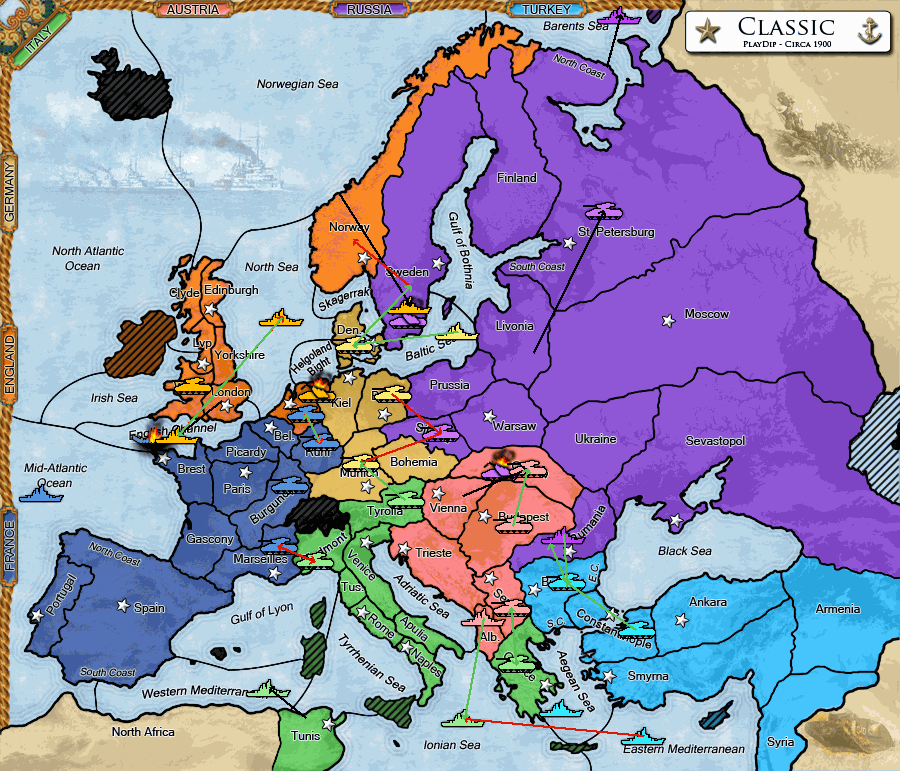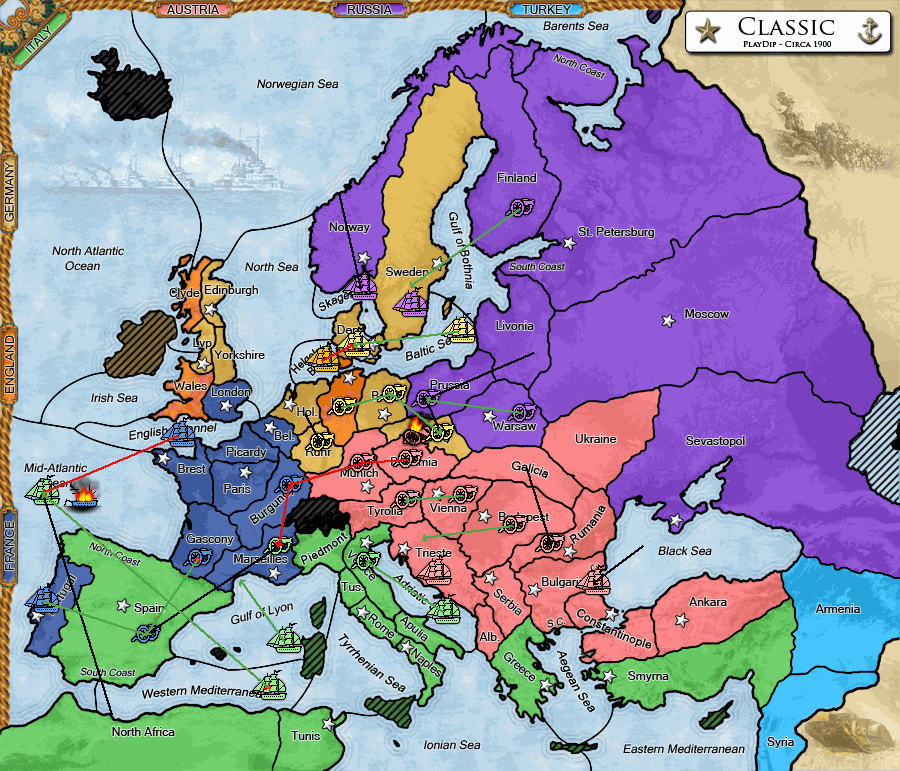3.5 Lessons from Diplomacy
October 31, 2020
November 11th 2019 was a day that has forever changed my life, for it was the day I started playing Diplomacy. I am very happy to have began Diplomacy last year given with COVID-19 limiting social gatherings it has been a tremendous way to pass the time and stay in touch with friends. There is a certain thrill to refreshing your browser when orders go through, and I would recommend to anyone who has not played to try it at least once, maybe even by playing with me!
Since November 2019 I have played in a total of five games of Diplomacy, three with friends, two with random players, on https://www.playdiplomacy.com/, one of the most popular online Diplomacy sites. These five games have taught me a few lessons (I have tried to order them from most to least important) which I will share here to help players that are new to the game.
Lesson 1: Who is Playing is Extremely Important
This is less applicable to playing against random players, but in games where you are playing with friends alliances have a tendency to form along predictable lines. For example in my second game I invited one of my friends who I saw daily to play. An alliance between us made lots of sense because we could just negotiate in person with the game map in front of us. Also, it was easier to build trust because we were talking face to face. On the flip side in my fourth game I played as Russia and attempted to forge an alliance with the UK against Germany. However, because it was Germany’s first game, and the UK wanted them to have a good time, I was unable to strike a deal even though Germany was an easy target.
These are the types of dynamics that inevitably crop up in games with friends, and must be understood when deciding what countries to ally with.
Lesson 2: Seize the Moment
While it is tempting and ‘safe’ to stick to one’s word in Diplomacy, there are certain situations where one just HAS to backstab an ally. A great illustration of this was when I was playing as Italy in Spring 1905 and moved against France. This move was precipitated by a bit of a stalemate for me in central Europe. After I moved into the Western Mediterranean France was in a very precarious position given both myself and the UK were moving against him. It should have been an easy decision to either move into Spain or sneak into the Mid-Atlantic Ocean. However, France was able to convince me I would be better served reaffirming our alliance. This was fine for a few turns before he backstabbed me. Lesson learnt, if you have an opportunity to expand take it!

Lesson 3: What is the Worst Case Scenario
While a game of Diplomacy is not going to be won by someone playing overly conservatively, it is worth knowing every turn what the worst case outcome could be and to try your best to defend against it. One can come back from losing a supply centre; on the other hand if a enemy unit is able to slip behind your front line that is much harder to bounce back from. This lesson was impressed upon me in my first game where as France I lost the Mid-Atlantic Ocean even though I had a total of three fleets I could use to defend it. I had become too focused on retaking Spain I completely lost sight of defending what for France is the most important territory on the board.

Lesson 3.5: Aggressive Openings
I say this is a half-lesson because this is something that I think is very case-by-case. Essentially what I have come to learn is that it is very tempting to play a safe opening and ‘see where the chips fall’. However, for countries with starting positions that necessitate a strong early-game alliance (I am thinking FRA/GER/AUS/TUR/ITA) it makes sense to start with an aggressive move against another country. The reason being is that it is a lot easier early in the game to convince ‘stronger hands’ (i.e. UK/RUS) to join your cause if you have already moved against another country and therefore they are looking vulnerable. This is especially true since these countries often have a few fronts to worry about, and would rather weakly support a country that looks like it may be a winner on a particular front than devote many resources to support a country that looks half committed to a front.